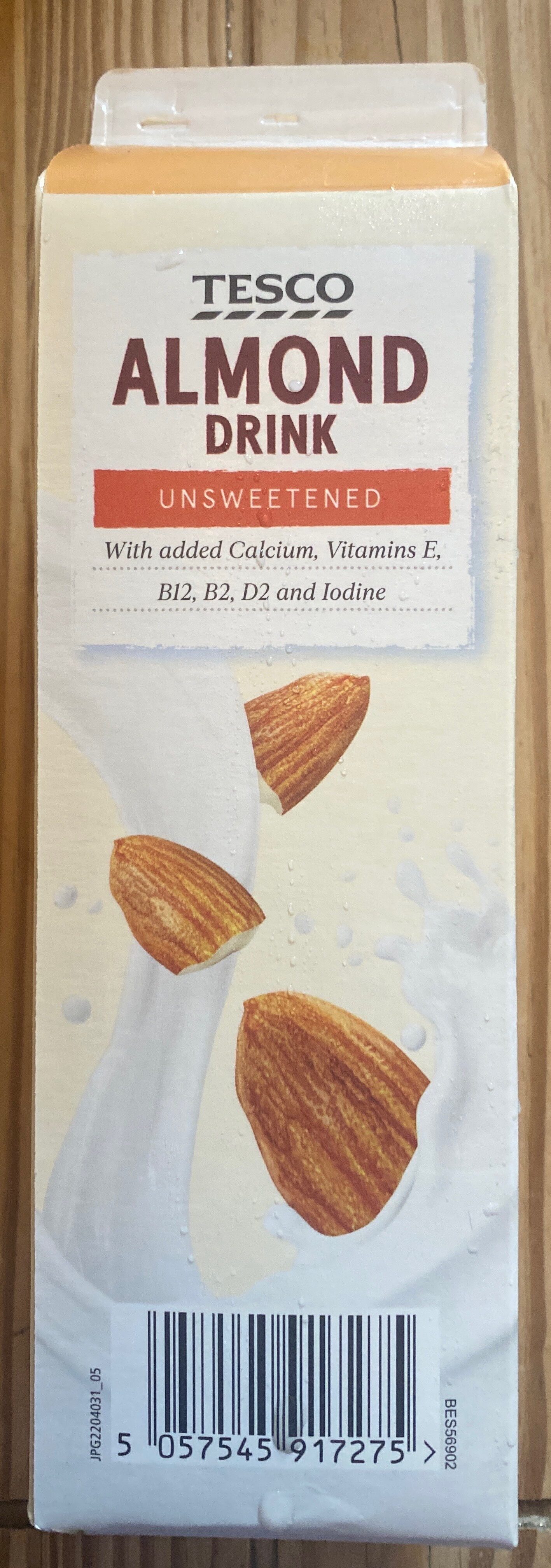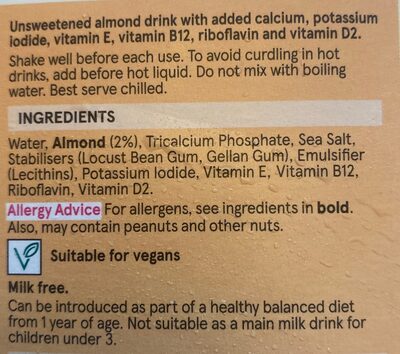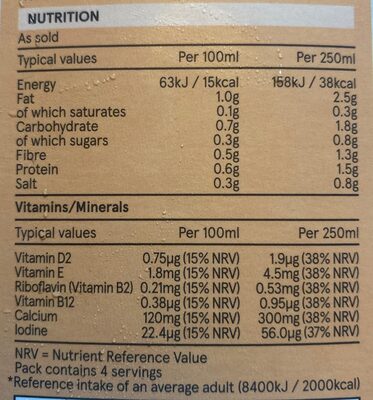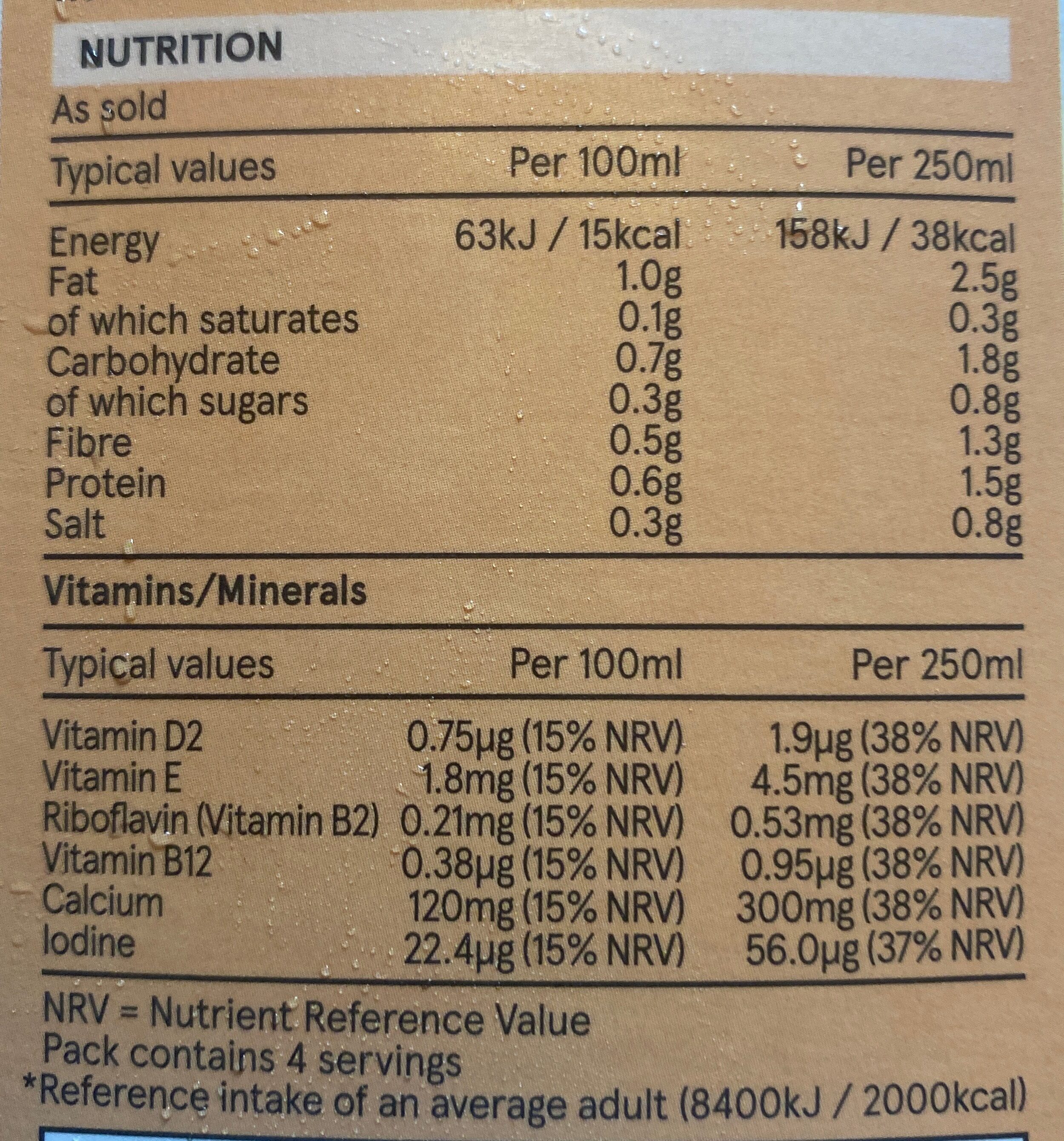Unsweetened Almond Milk Alternative - Tesco - 1l
This product page is not complete. You can help to complete it by editing it and adding more data from the photos we have, or by taking more photos using the app for Android or iPhone/iPad. Thank you!
×
Barcode: 5057545917275 (EAN / EAN-13)
Quantity: 1l
Packaging: Tetra Pak, Composite-carton, Pet-lid
Brands: Tesco
Categories: Plant-based foods and beverages, Beverages, Plant-based foods, Dairy substitutes, Milk substitutes, Nuts and their products, Plant-based beverages, Plant-based milk alternatives, Nut-based drinks, Almond-based drinks
Labels, certifications, awards:
Vegetarian, Vegan, FSC, FSC Mix, No milk
Traceability code: FSC-C014047
Stores: Tesco
Countries where sold: Ireland
Matching with your preferences
Report a problem
Data sources
Product added on by kiliweb
Last edit of product page on by silvajacq.
Product page also edited by baileysloan, heldersantos1990, inf, openfoodfacts-contributors, packbot, roboto-app, swipe-studio, teolemon, vaporous, yuka.ZVpoZUNZQWc5K2xSd3M5aHdTM0k4OGd0LzdYNGZWbnJLZGdqSVE9PQ, yuka.sY2b0xO6T85zoF3NwEKvlm5gDeXs_GjFLAHfm1fUw9WCAaTRQd9879XGK6s, yuka.sY2b0xO6T85zoF3NwEKvlnZ4d_HmjQ37DRbknxGO_t6LLrXoSI9P4IbqbKo.












